Brugmansia Winter Care - Wintering Brugmansia In Your Home
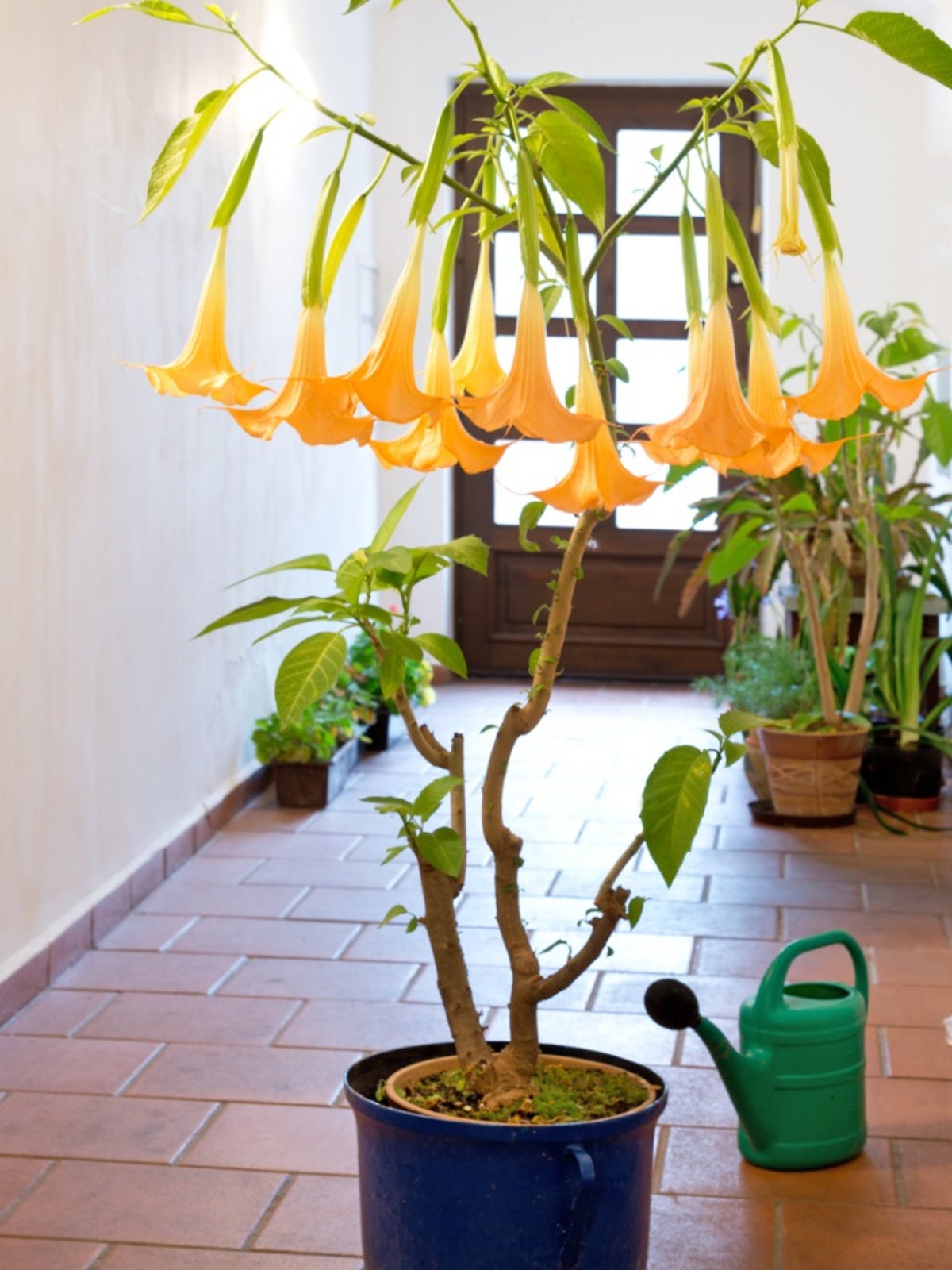

While most types of brugmansia, or angel trumpets, can thrive year-round outdoors in warmer climates, they need to be protected from freezing temperatures, especially when growing brugmansia in cold climates. Therefore, wintering brugmansia indoors is oftentimes recommended. Follow these tips for overwintering brugmansia in your home.
Growing Brugmansia in Cold Climates
Overwintering brugmansia indoors is an important part of brugmansia maintenance in cold climates. To make this endeavor easier, it's better to grow brugmansia plants in containers. Container grown plants can be easily moved indoors for brugmansia winter care.
Brugmansia Winter Care Preparation
Prior to bringing brugmansia indoors for winter dormancy, it's a good idea to cut the plant back. Likewise, outdoor brugmansia plants in warmer climates should also be cut back to the ground and mulched generously. To ensure continuous plants, in the event something goes wrong, you may also want to consider rooting the cuttings taken during pruning. Once temperatures drop below 50 degrees F. (10 C.). outside, it is time to take steps for wintering brugmansia. Place the plant in a dark, poorly lit location, such as the basement or even a closet, for winter storage. Less light and cooler temperatures of 40 to 50 degrees F. (5-10 C.) are important for dormancy. Continue to water brugmansia sparingly about once a month to prevent the plant from drying out completely. However, do not fertilize it. Allow brugmansia to enter dormancy as normal. Complete leaf drop during this time is normal for brugmansia over winter.
Wintering Brugmansia as Houseplants
Some people prefer to grow brugmansia over winter as houseplants rather than allowing them to go dormant. This is fine. As some species of brugmansia may continue to develop buds throughout winter, in order to encourage blooming the brugmansia will require significant light. Place brugmansia in a south-facing window where it will receive plenty of sunlight and treat it as a houseplant throughout winter, watering about once a week. Likewise, they can be placed in a greenhouse. While the plant may begin dropping leaves once it's brought indoors, this is a normal response and nothing to be concerned about. Growing brugmansia in cold climates requires a little extra effort, but it is well worth it in order to have these lovely plants in your garden year after year.
Gardening tips, videos, info and more delivered right to your inbox!
Sign up for the Gardening Know How newsletter today and receive a free copy of our e-book "How to Grow Delicious Tomatoes".

Nikki Tilley has been gardening for nearly three decades. The former Senior Editor and Archivist of Gardening Know How, Nikki has also authored six gardening books.
-
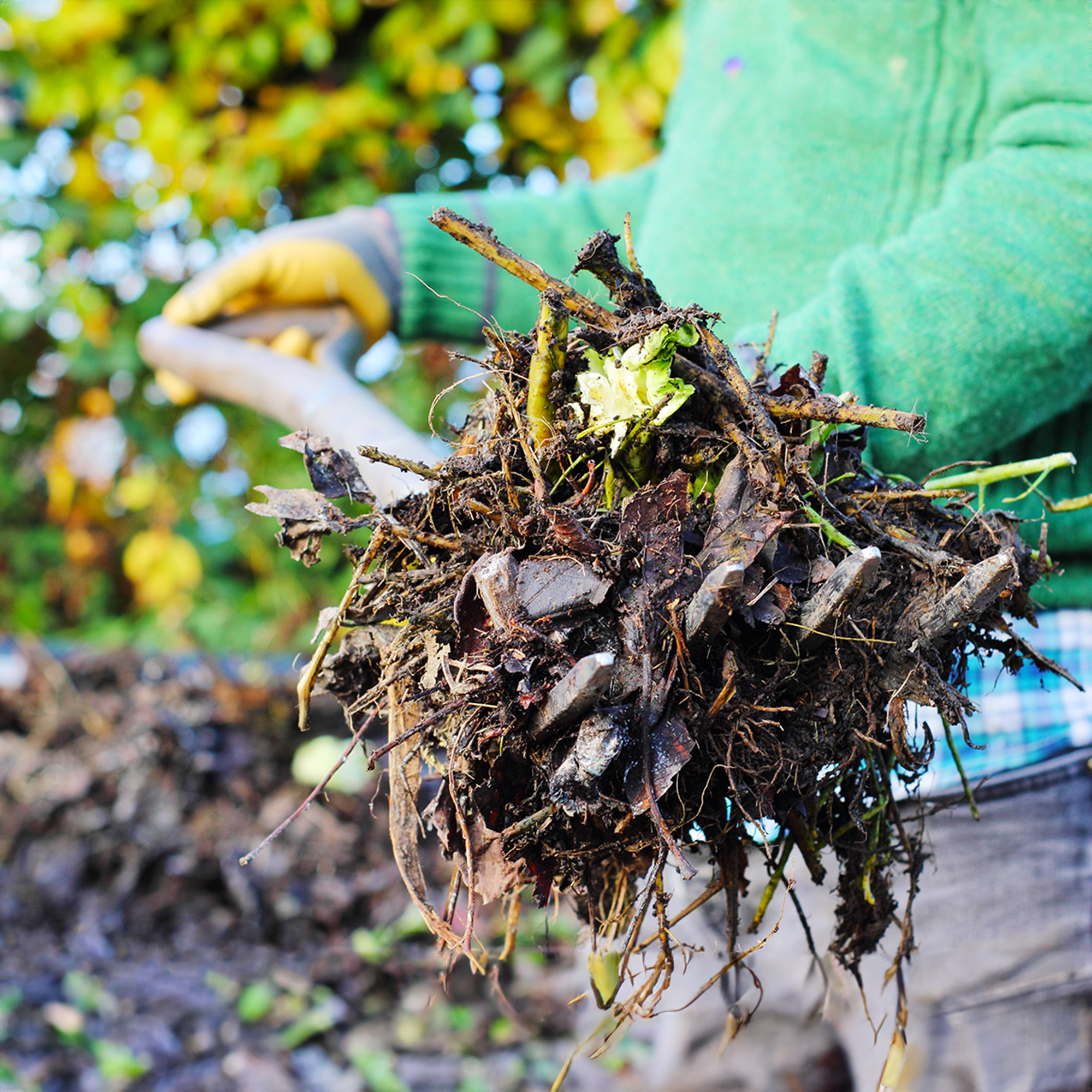 10 Common Composting Problems That Can Spoil Your Garden Gold – Plus Easy Fixes
10 Common Composting Problems That Can Spoil Your Garden Gold – Plus Easy FixesLearn how to troubleshoot common composting issues before they ruin your stash – from bad smells and bugs to materials not breaking down as they should.
By Susan Albert
-
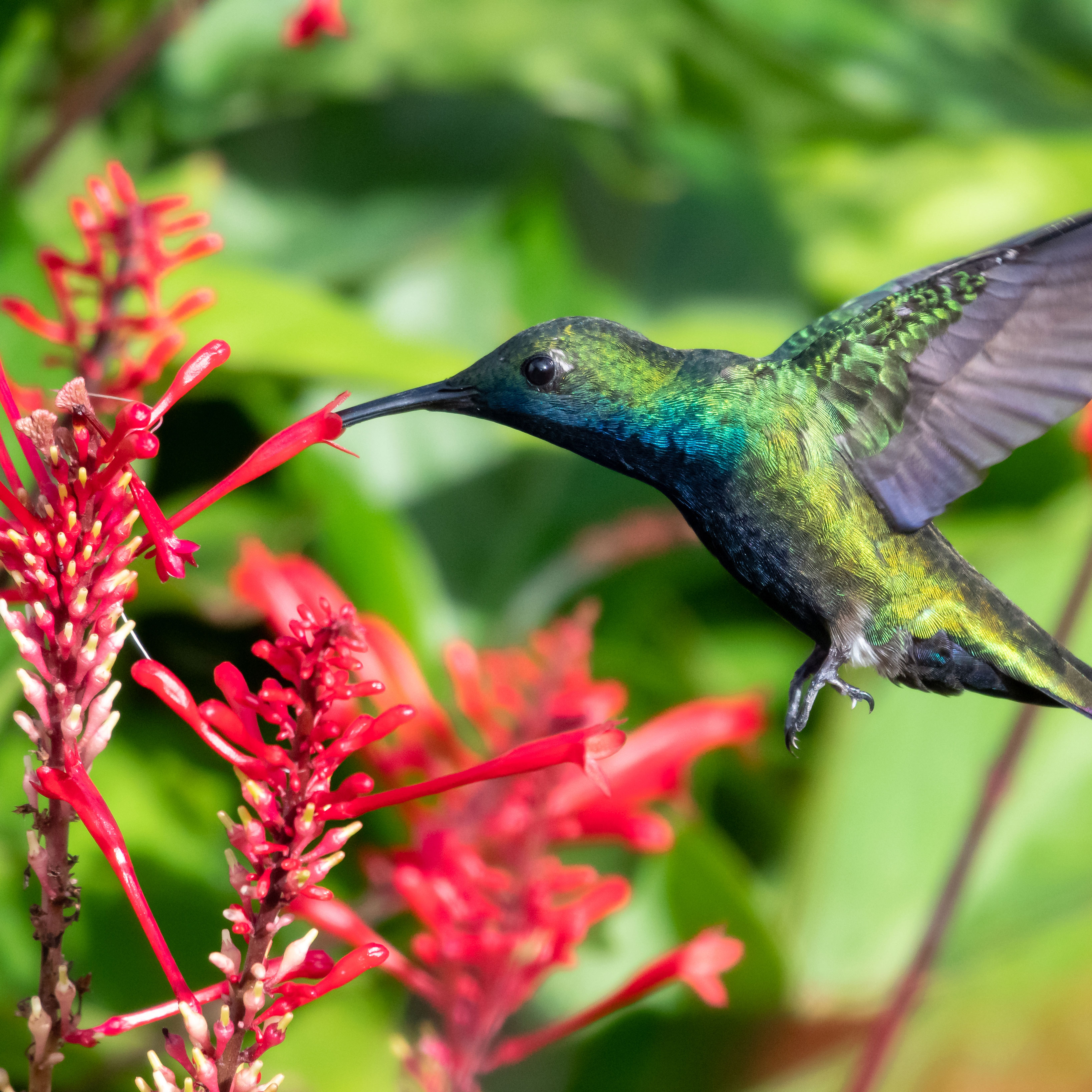 Terrifically Tubular Flowers For Hummingbirds: 9 Tube-Flowered Plants To Attract Hummers
Terrifically Tubular Flowers For Hummingbirds: 9 Tube-Flowered Plants To Attract HummersGrowing tubular flowers for hummingbirds helps you create the optimum feeding conditions for your winged friends. Here are nine tubed delights for hummers
By Tonya Barnett
-
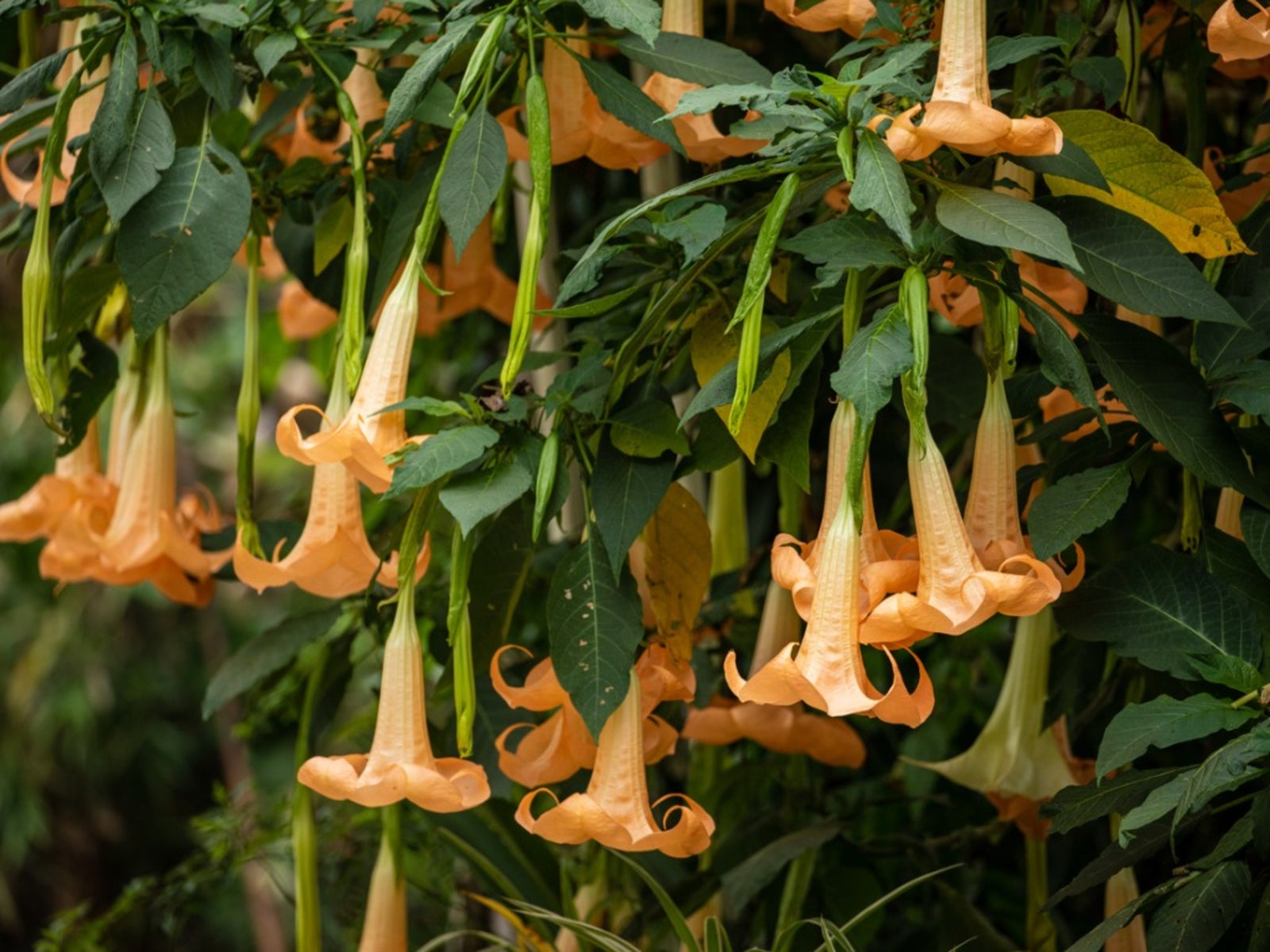 Brugmansia Cold Tolerance: How Cold Can Brugmansias Get
Brugmansia Cold Tolerance: How Cold Can Brugmansias GetHow cold can Brugmansias get and still survive? The United States Department of Agriculture sets Brugmansia cold hardiness in zones 8 to 11. Learn more about the cold tolerance of Brugmansia plants in this article.
By Bonnie L. Grant
-
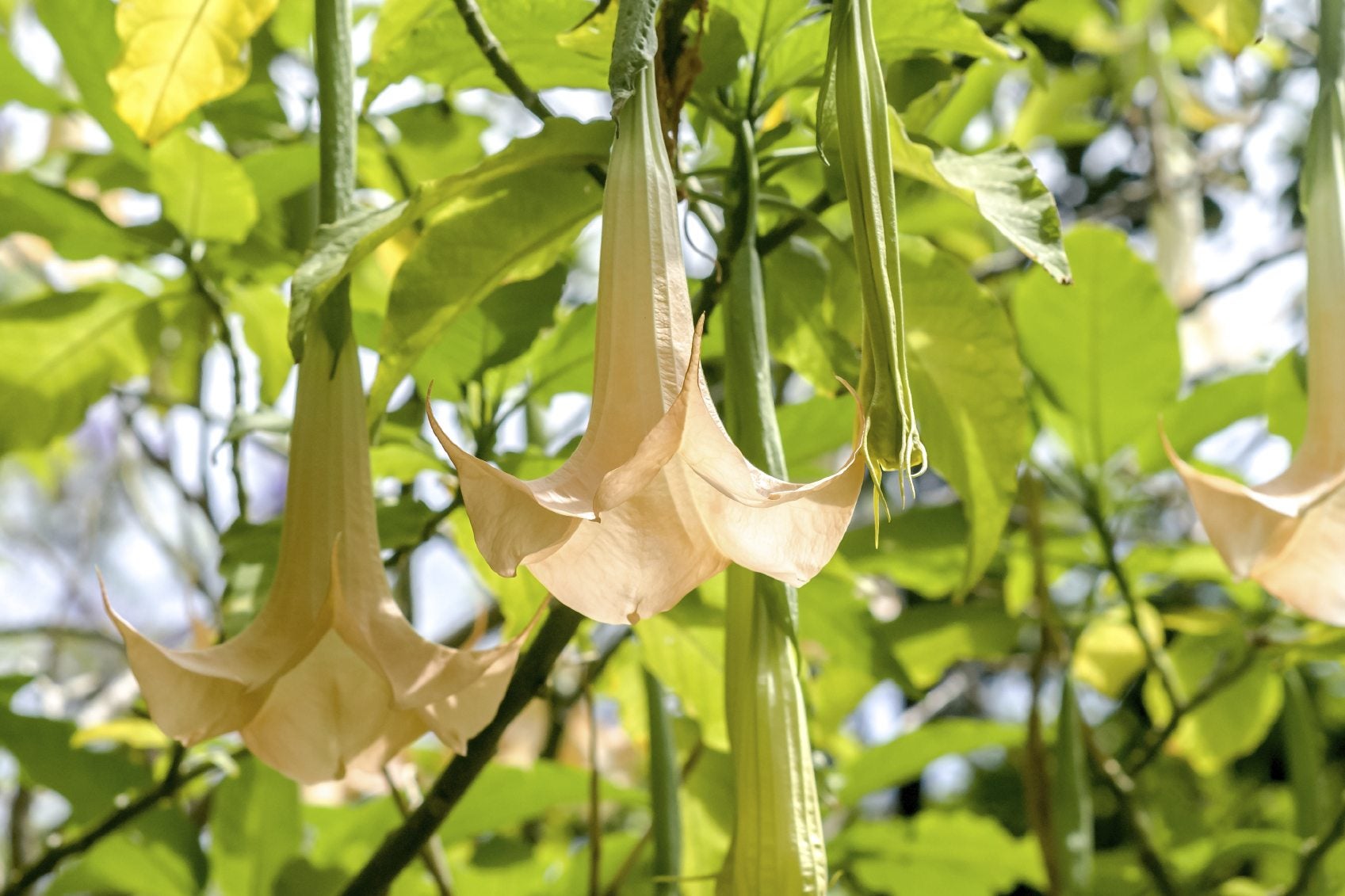 Brugmansia Plant Care: How To Care For Brugmansia In Ground Outside
Brugmansia Plant Care: How To Care For Brugmansia In Ground OutsideGrowing brugmansia in the ground works well in United States Department of Agriculture zones 9 to 12. Try a brugmansia in the garden for show-stopping color and dynamic proportions. This article will help get you started.
By Bonnie L. Grant
-
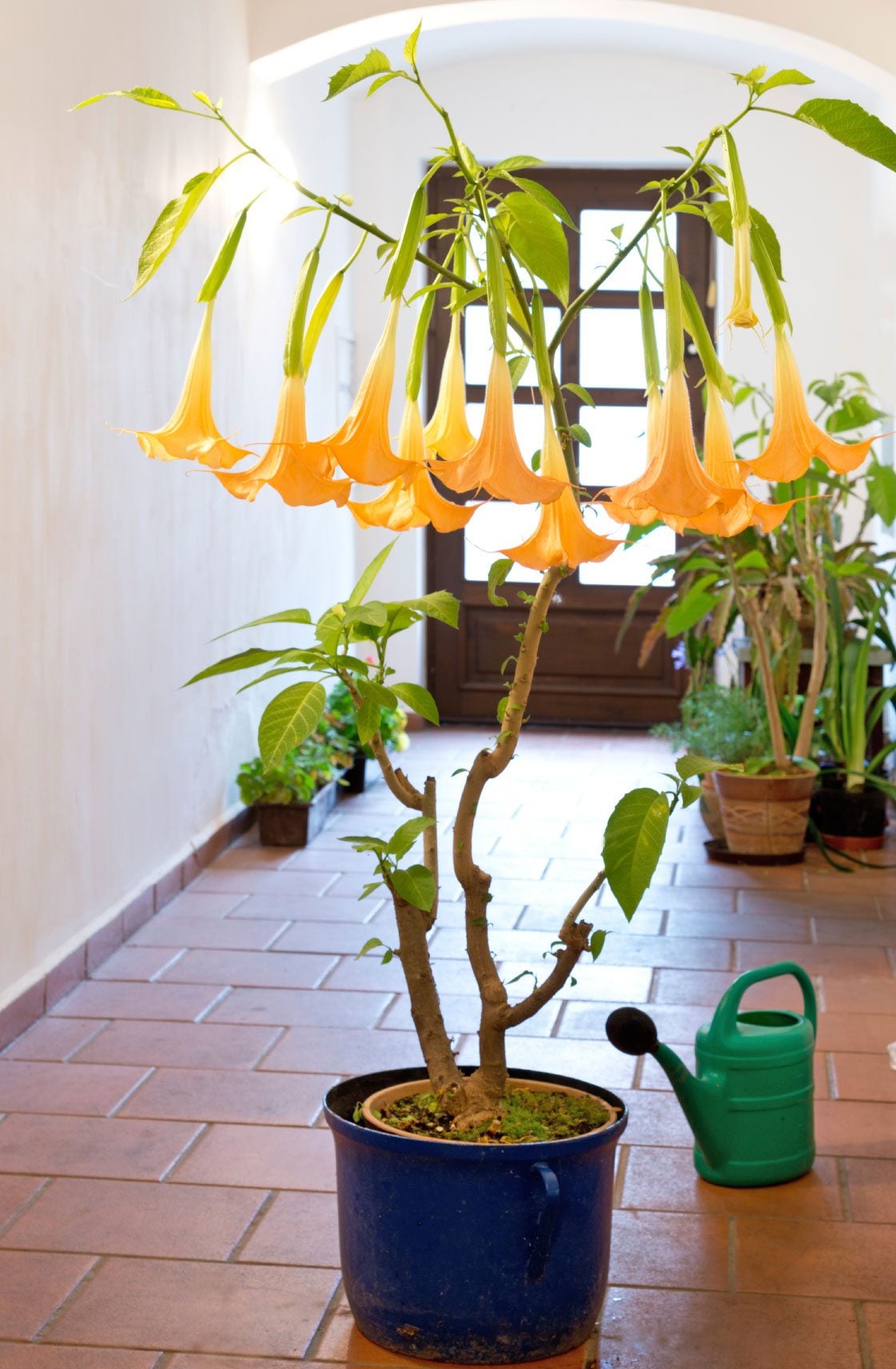 Watering Brugmansia Plants: How Much Water Does Brugmansia Need
Watering Brugmansia Plants: How Much Water Does Brugmansia NeedBrugmansia is a distinctive plant with big leaves and huge, drooping, trumpet-shaped blooms as long as your foot. This flashy tropical plant is surprisingly easy to grow, but it helps to know exactly how to water brugmansias. Click here for more.
By Mary H. Dyer
-
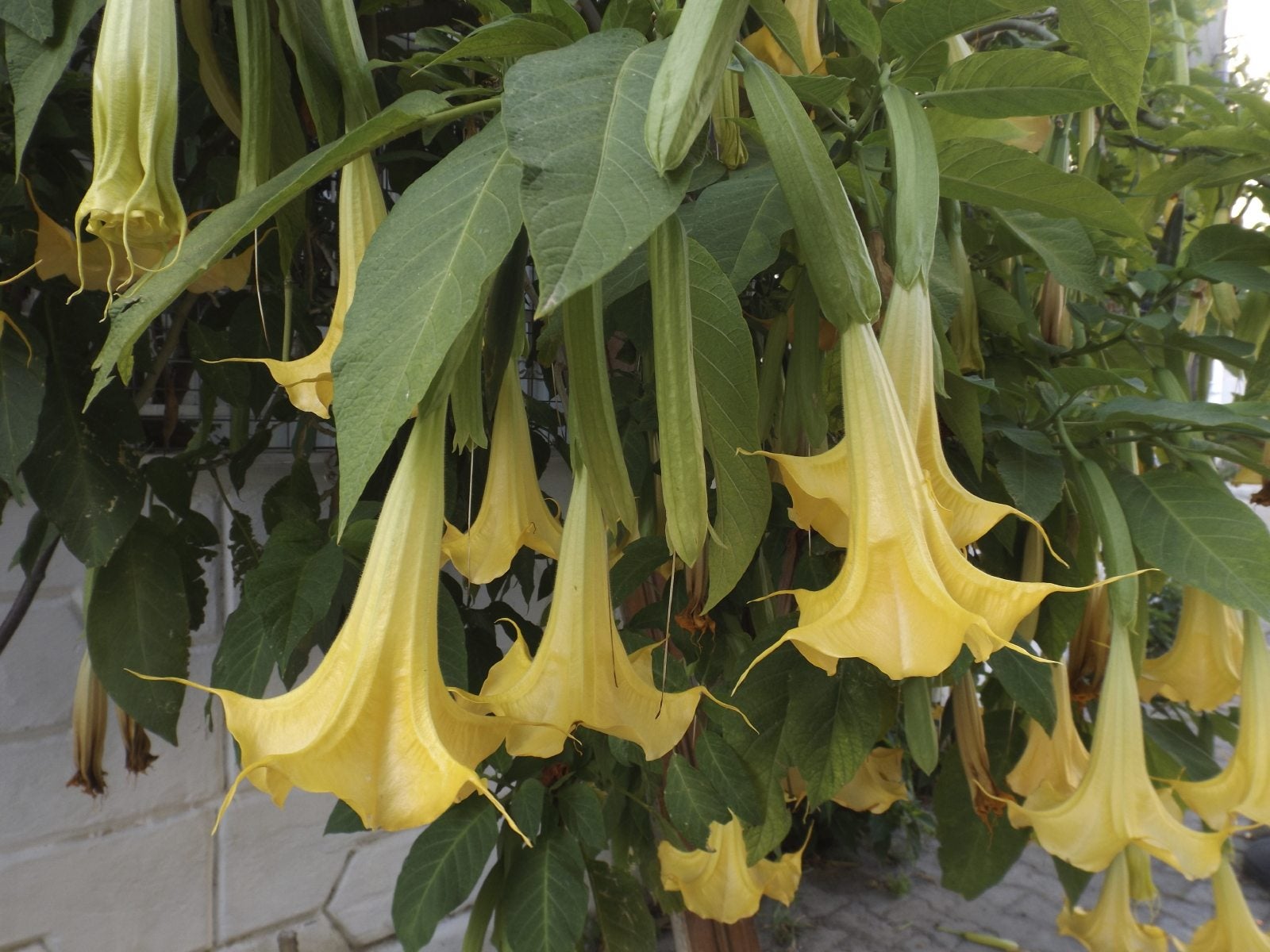 Brugmansia Problems: How To Treat Disease And Pests Of Brugmansia
Brugmansia Problems: How To Treat Disease And Pests Of BrugmansiaAlso known as angel trumpet or simply "brug," brugmansia is a shrubby plant with masses of impressive, trumpet-shaped flowers. While little care is required, pests and diseases may compromise the health and longevity of the plant. Learn more here.
By Mary H. Dyer
-
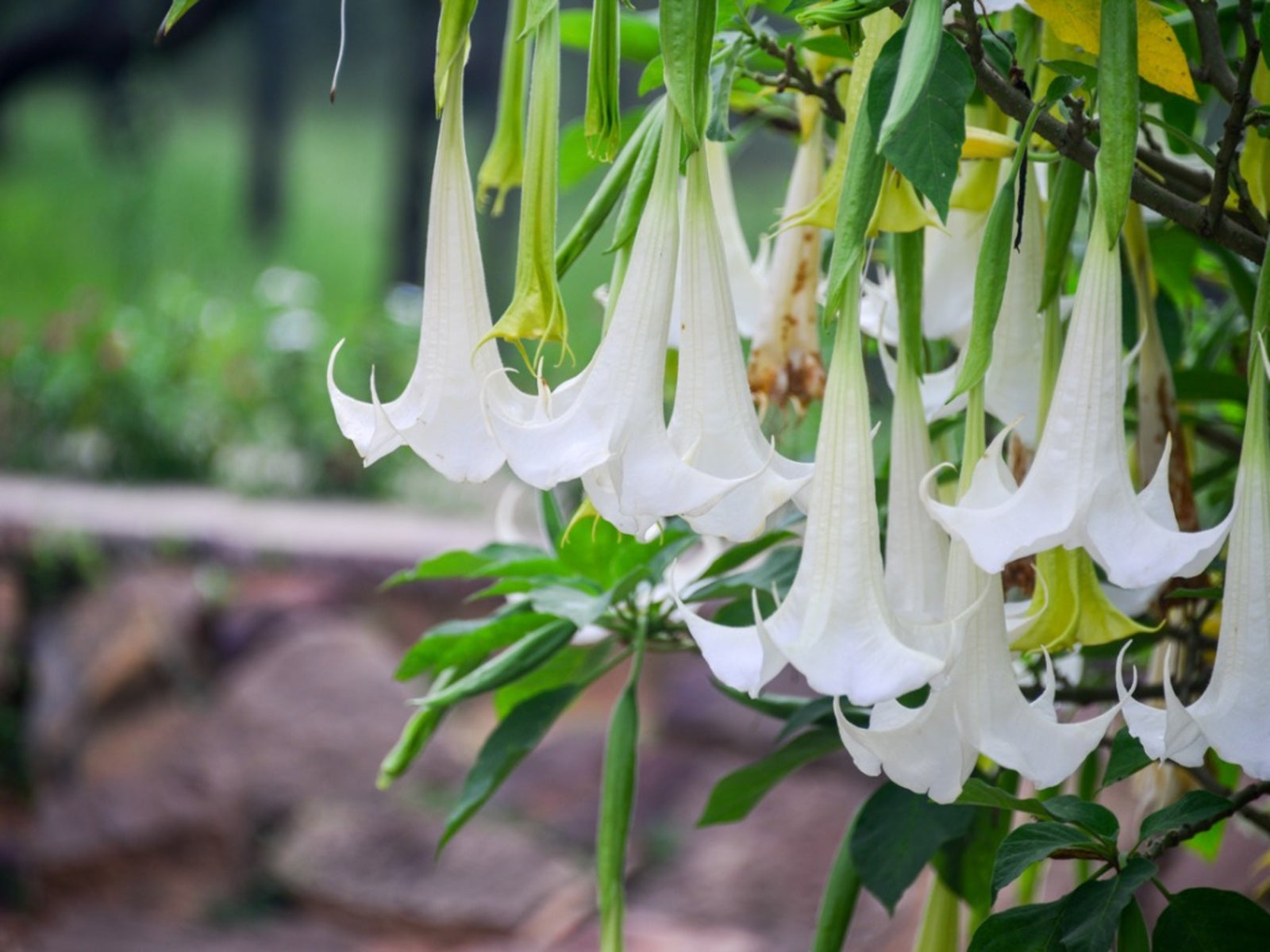 Brugmansia Diseases: Fixing Common Issues With Brugmansia
Brugmansia Diseases: Fixing Common Issues With BrugmansiaIt's never fun to watch a beloved plant fall ill to an unknown disease. Find out more about common brugmansia diseases so you'll be armed and ready should your plant begin to have problems. This article will help.
By Kristi Waterworth
-
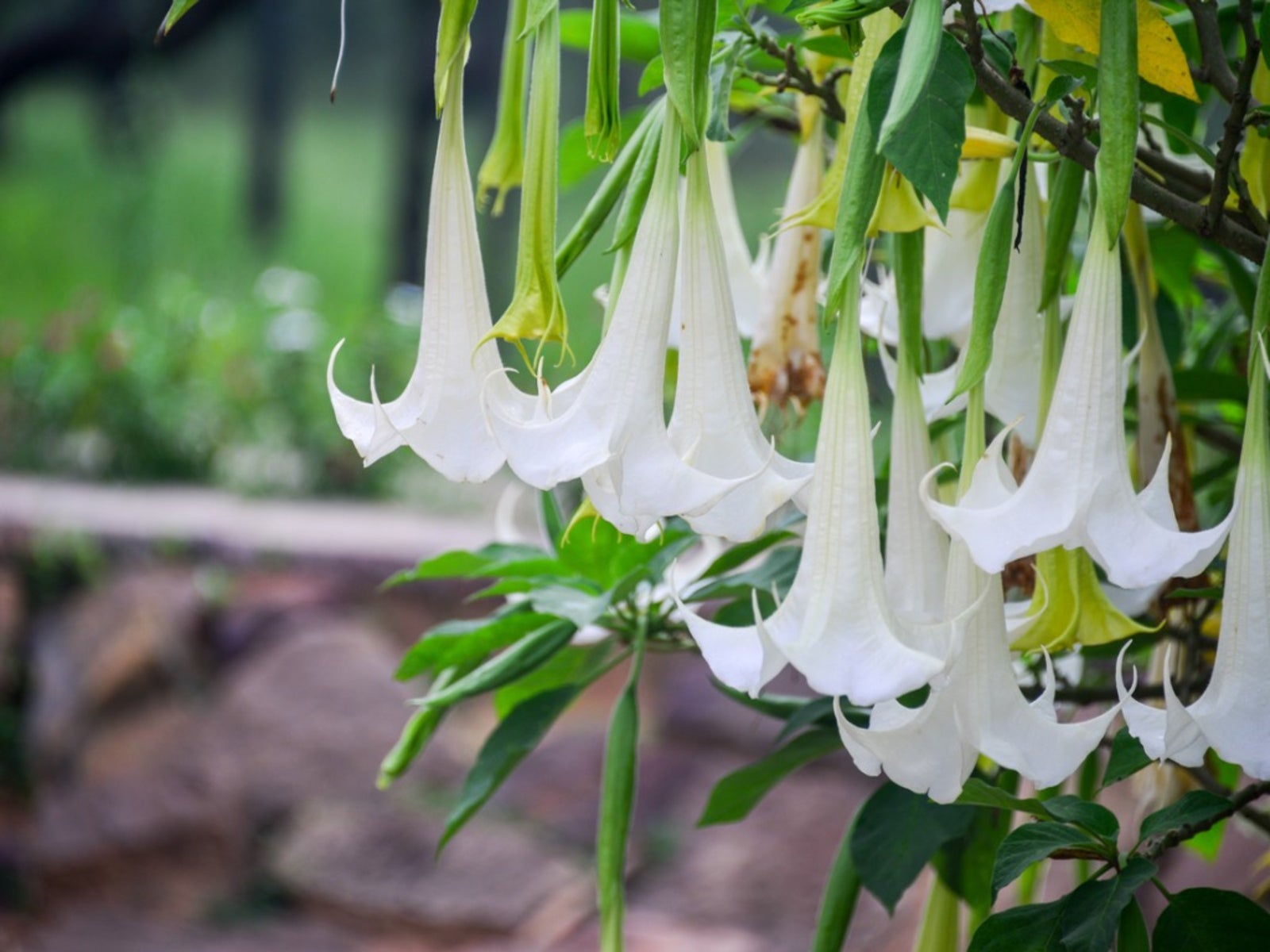 Feeding Angels Trumpet: When And How To Fertilize Brugmansias
Feeding Angels Trumpet: When And How To Fertilize BrugmansiasIf there ever was a flower you just had to grow, brugmansia is it. The plant produces a season long display of trumpet-shaped blooms. Knowing how to fertilize brugmansias will enhance and extend these brilliantly colored flowers. Click here to learn more.
By Bonnie L. Grant
-
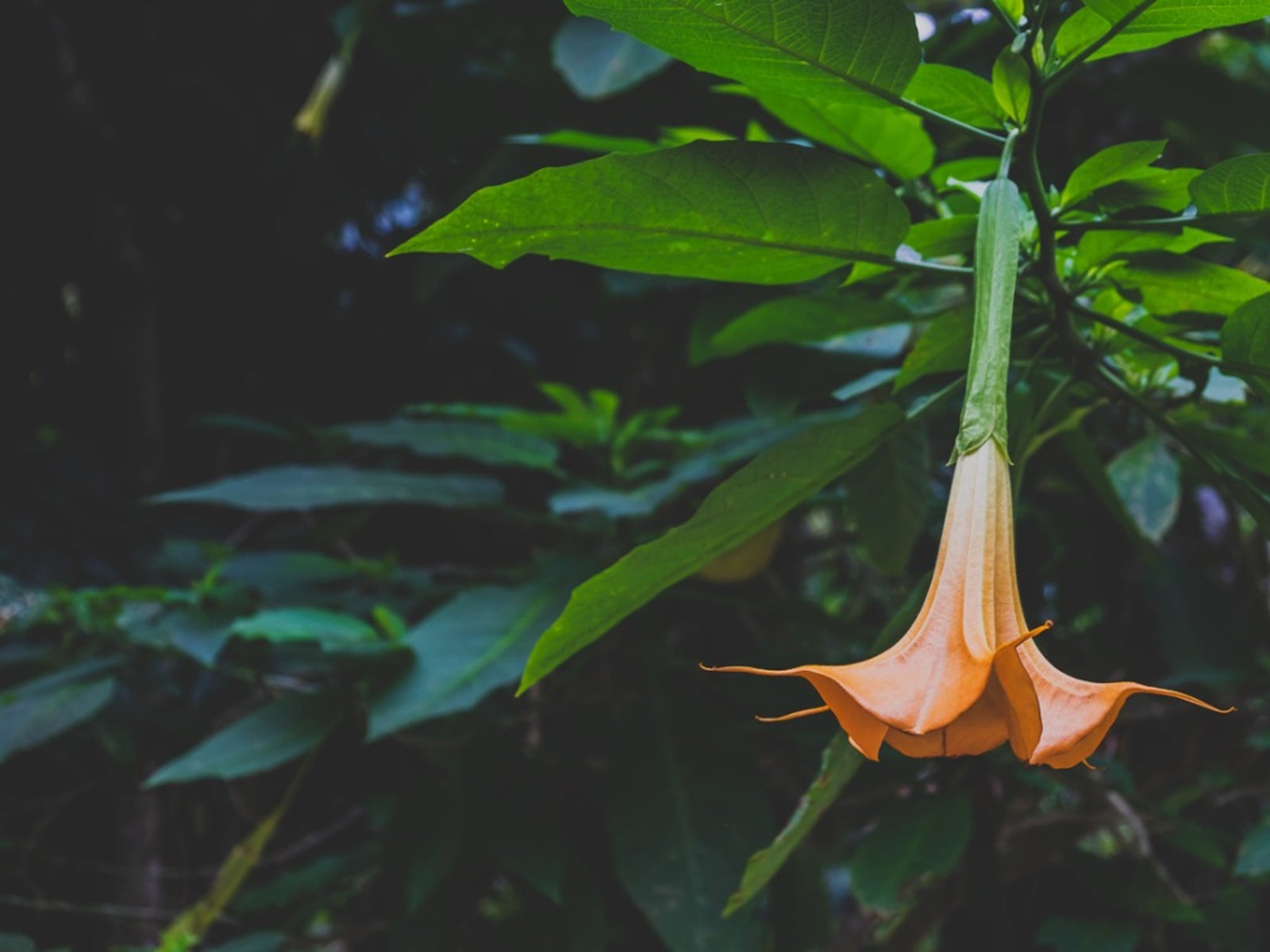 Learn How To Prune Brugmansia Trees
Learn How To Prune Brugmansia TreesBrugmansia plants make attractive specimen plantings. But, in order to keep them looking their best, trimming brugmansia may be necessary. Knowing how to prune brugmansia is important, and this article will help.
By Nikki Tilley
-
 Tips For Propagating Brugmansia
Tips For Propagating BrugmansiaBrugmansia is not only easy to grow but propagating brugmansia is easy too. There are three methods of brugmansia propagation - by seeds, cuttings, and air layering. Find the method that works best for you here.
By Nikki Tilley